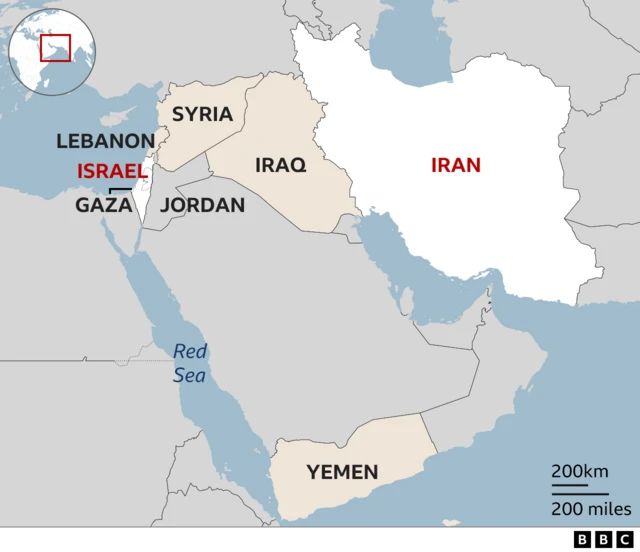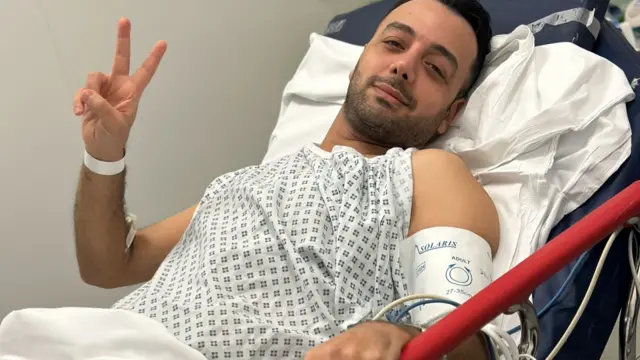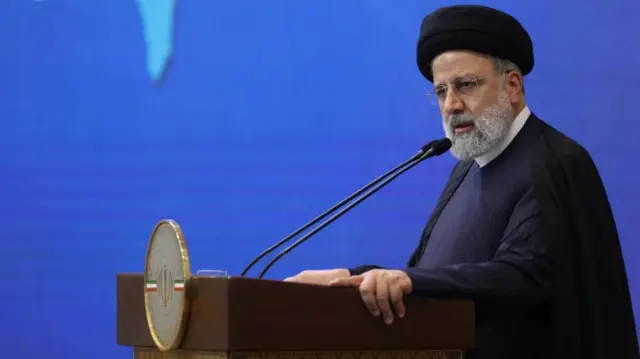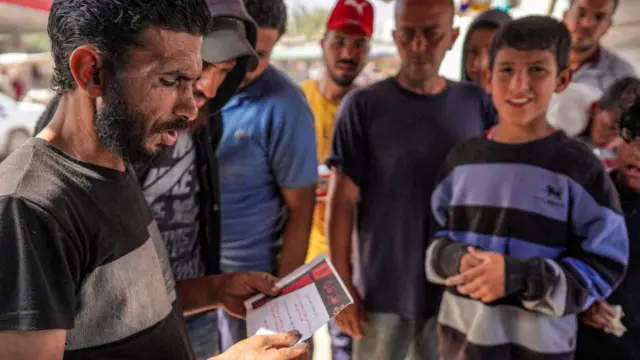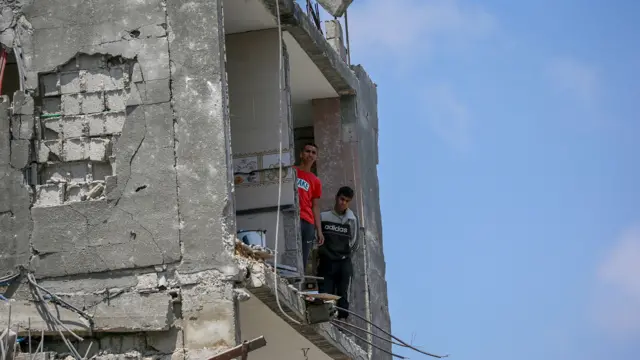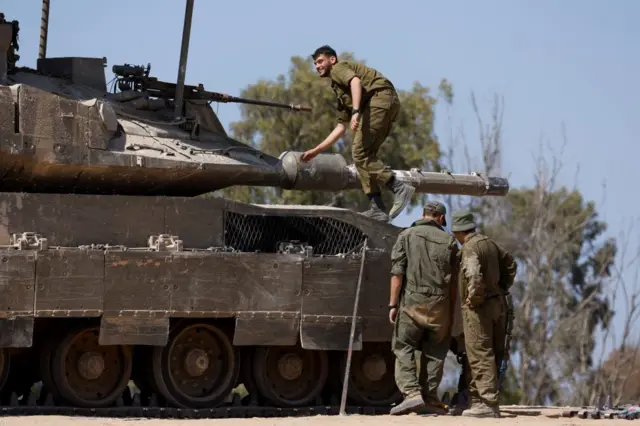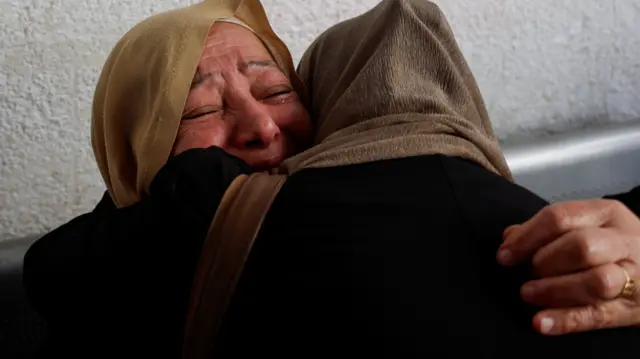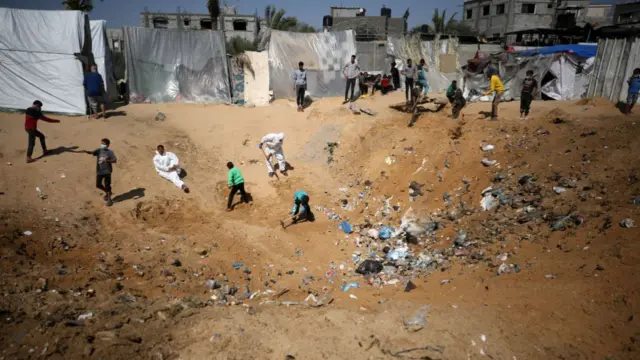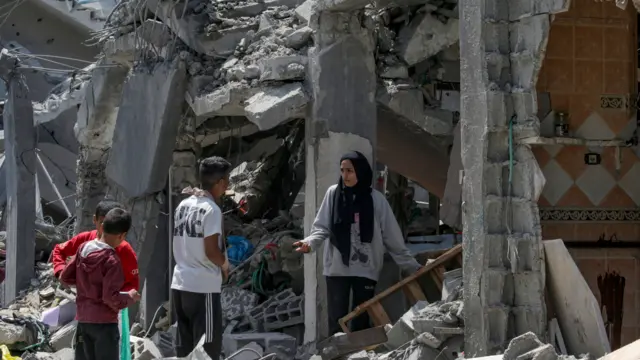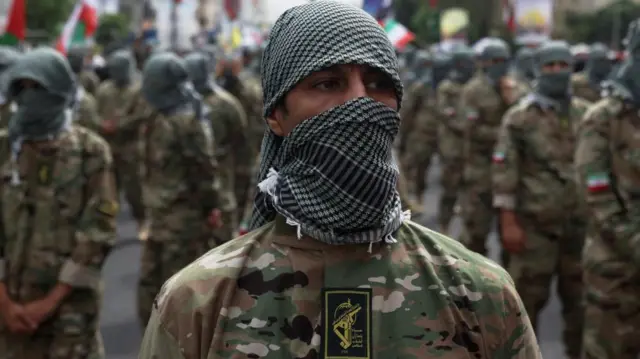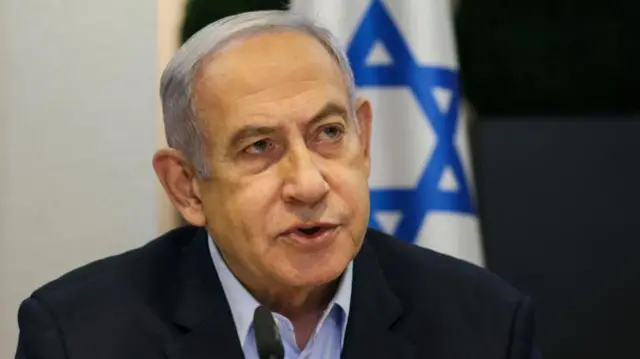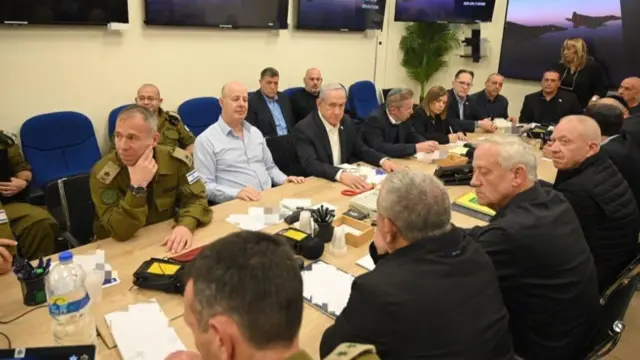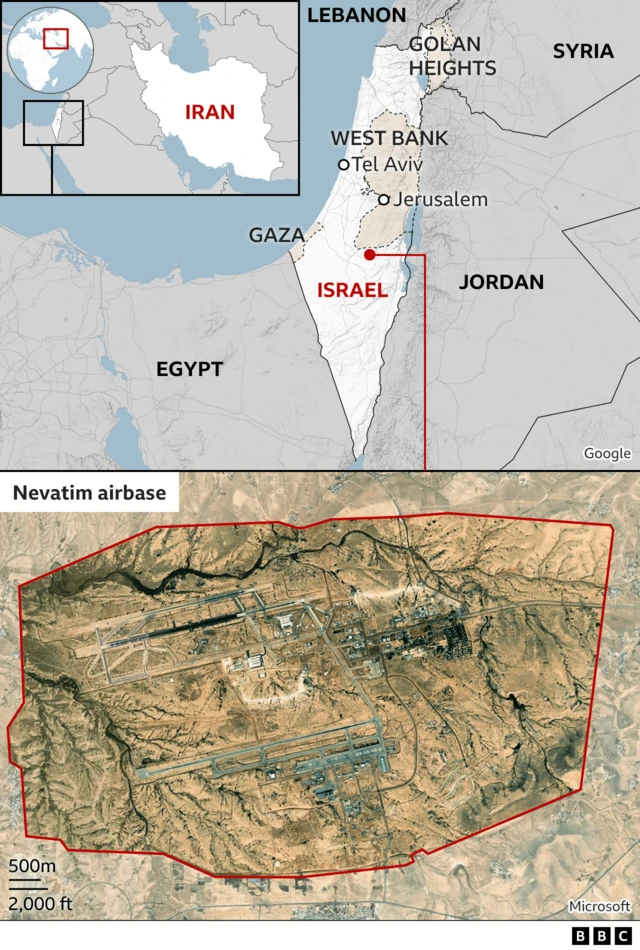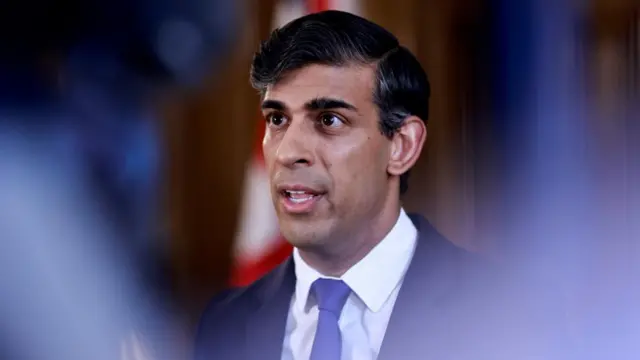UN says Israel imposing 'unlawful' restrictions on aidpublished at 11:32 BST 16 April 2024
The UN says Israel is still imposing "unlawful restrictions" on aid for Gaza, despite facing increasing pressure to allow more humanitarian supplies in.
Ravina Shamdasani, a UN human rights office spokesperson, says Israel is also carrying out "widespread destruction of civilian infrastructure".
The Israeli agency which coordinates aid into Gaza - Cogat - says a food convoy entered Gaza yesterday via a new northern crossing.
The agency said on X, external that "126 aid trucks coordinated to northern Gaza overnight", adding that two bakeries are operational in northern Gaza "supplying 800,000 pita breads for the local population".
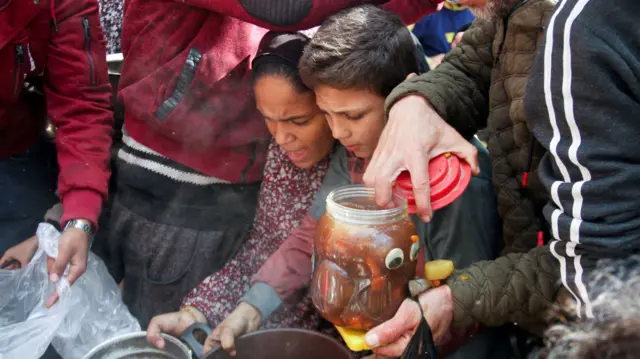 Image source, Reuters
Image source, ReutersPalestinians receiving food in Jabalia, northern Gaza, last month
